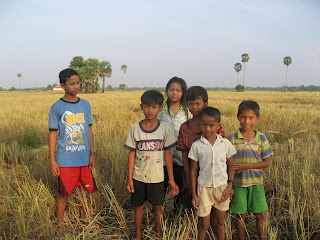
Anyway, Merry Christmas and Happy Holidays! Time for a shameless plug... A couple people have asked if they can financially support what I’m doing here. Well, not so much directly, but there are plenty of ways to get involved in international development. If you’re still looking for last-minute gifts and have world-exploring/charitably-minded friends, donations are about as easy as they get. A lot of organizations will even give you something you can print out for/email to the recipient. BUT, although it can feel great to give to anything, it’s good to put some thought into your giving. There have been billions of dollars worth of aid poured into the developing world. Arguably, much of it has done more harm than good by making communities reliant on aid without providing any long-term solutions to problems, e.g. giving away mosquito nets that are then sold for less than they are worth, providing incentives for parents to sell and/or exploit their children to be the recipients of aid, or gifting supplies to a school or health center that quickly disappear to the homes of higher-ups. Unfortunately, (I read this in a study once though I can’t remember where) people who donate to charity are much more likely to give money to a specific individual or to buy a specific item. Think of the organizations that send you a personalized profile of the child you support. Those tactics are much more successful than an appeal for aid to a community of 4,000 people. Now, emergency aid is quite different, but in the long term, giving things to people doesn’t accomplish a whole lot.
From random reading of my own and seeing some aid work here, I have three ideas about what can potentially work in aid to developing countries:
1. Education. A couple much-discussed studies found that every additional year of secondary education a girl received substantially raised her age of first child bearing and lowered the number of children she would have (see here, this is fascinating stuff). Certainly not least, educated citizens are more likely to be able to effectively recognize and object to things gone wrong in their societies (notably corruption, which is a huge drain on almost all if not all developing countries). Education can also be outside of the formal education system, for example simple health education about hygiene or birth control. On a personal note, I can already tell you of more than a handful of people I know here who didn’t get picked for one of the few-and-far between scholarships they would have done well by. Sometimes these people are the most heartbreaking for me, since they saw a potential future for themselves beyond what their parents have but are often stuck following in their footsteps.
2. Women’s empowerment. See the first bit above. Also, aid provided to women is much more likely to be put to use to improve their communities, since women are usually the ones walking long distances to get water or raising their children without access to good education. Men in developing countries are often – though of course this is a gross overgeneralization – more likely to spend expendable income on themselves, frequently in forms like beer or buying sex services. Often violence against women is rampant in developing countries too, but you can’t give away freedom from domestic violence or sexual assault. Women need to be able to get themselves out of these situations.
3. Microfinance. This is the lending (not giving) of small amounts of money to people who might otherwise not be able to get cash for small business or self-improvement projects. Often, the loans are given to groups of people in a community, especially groups of women, because social pressure to repay the loans means low rates of default. Many microfinance institutions have incredibly good rates of repayment and are financially viable businesses. There are potential drawbacks to microfinance, for example this recent article about microfinance-related suicides. But combined with two areas above, it is a substantial way to allow people to make a difference in their own lives in the ways they want and need. In the end, aid is a drop in the bucket compared to the possibilities of the free market.
With the number of nonprofits out there today, it’s easy to find one doing work that jives with your interests and doing it well (check out www.charitynavigator.org to search through and see financials-based ratings of different organizations). A few I can think of that jive with my own thoughts above or that have well-thought-out strategies towards development are The Acumen Fund (microfinance focused on fueling enterprise to benefit the communities they serve) , The Huger Project (women’s empowerment with targeted initiatives in different countries), and Kiva (microfinance that is fun for gift giving, since your investment can be ‘tracked’ and re-applied after loan repayment).













